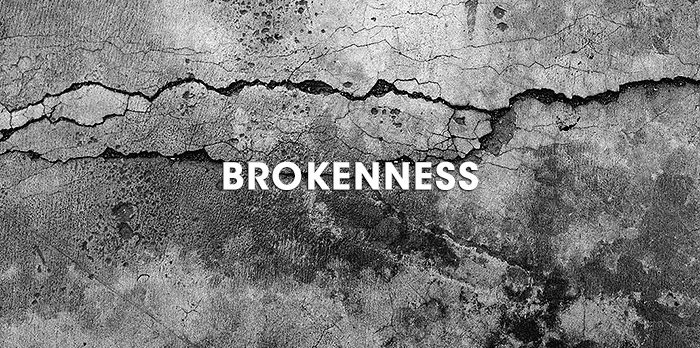A “Broken Spirit” vis-à-vis a “Broken Spirit”.
King David and his son King Solomon are the only authors of Scripture to speak of a “Broken Spirit”… The expression is used once in Psalms and three times in Proverbs, but with very different meanings. David and Solomon were a world apart with their use of the expression, but in Hebrew there is no confusion. The Hebrew language clearly speaks of two different conditions, with the confusion coming from the translation into English.
Psalm 51:19 “The sacrifices of God are a broken spirit. A broken and humble heart, O God, you will not despise.”
Here the word translated “broken” is “nishbarah”.
The root of nishbarah is sh-b-r, meaning to break, but when applied to a person, the meaning becomes deep sorrow. The N prefix shows that it is past tense and reflexive; that the deep sorrow has already been done by the one with the broken spirit. That is important because, in this Psalm, David is stating his sorrow as complete, that he has repented and changed his ways so he can now ask God to forgive him. His repentance is referred to in Psalm 51:13-15. “Cast me not away from Your presence and take not Your Holy Spirit from me. 14 restore Your salvation to me and with a willing, free spirit. 15. I shall teach transgressors Your Ways and sinners will be converted to You.”
David again speaks of repentance in Psalm 119:59 “I thought about my ways and turn my feet to Your testimonies.” Each of us is to continually consider the things we have been doing, not continuing to repent for the same sins, but thinking about what we have said and done recently.
Return is used throughout the Hebrew Scriptures to speak of repentance.
Solomon too spoke of a broken spirit, but in a very different way. Solomon uses the word, n-khe-a, which refers to depression, not to repentance. N-khe-a is used only in these three verses, appearing nowhere else in Scripture.
Proverbs 15:13. “A merry heart makes a cheerful countenance, but a broken spirit (brings) sorrow of the heart.”
Proverbs 17:22. “A merry heart does good like a medicine, but a broken spirit dries the bones.”
Proverbs 18:14. “The spirit of a man will sustain his Infirmity, but who can bear a broken spirit?”
Some translations say “wounded spirit” instead of a “broken spirit”.
The meaning of n-khe-a is: depressed, dejected, melancholy, defeated. Apparently, Solomon was more familiar with despair than with repentance.
Solomon, who was born in a palace, speaks of depression and defeat, and not of repentance. How can the man born to a king and raised to be a king speak of depression and defeat while his father, who was born a shepherd, understood his relationship to God and the need for repentance? The teenager who ascended the throne at seventeen, and was so blessed by the Lord when he asked him for wisdom at Gibeon (1 Kings 3:3) drifted away from the Lord over time. During the years of his reign, he acquired wives and many possessions that drew his attention from the Lord so that he became cynical, writing some very sad things in Proverbs and Ecclesiastes. Ecc. 4:1 “So I returned and considered all the oppressions that are done under the sun and behold the tears of such as were oppressed and they had no comforter and on the side of their oppressors there was power, but they had no comforter. 2. Therefore I praised the dead which are already dead more than the living that are yet alive. 3. Yes, but is he then both they, who has not yet been, who has not seen the evil work that is done under the sun 4. Then I saw all labor and all skill for work, that it is rivalry of one with another. This is also vanity and a striving after the wind.”
Ecc. 7:15 “I have seen all things in the days of my vanity: there is a just person who perishes in his righteousness and there is a wicked person who prolongs his life in his wickedness.” Clearly, Solomon knew depression.
Depression is caused by a number of things, one of which is drawing away from the Lord. Solomon’s quest for possessions drew him away so that he entered the realm of selfishness which cost him his walk with the Lord. In Proverbs and Ecclesiastes, he does not once mention repentance, atonement, or a return to the Lord.
This attitude is evident in 1 Samuel 16:14 when an evil spirit torments Saul. The spirit of the Lord left Saul, making Saul vulnerable to an evil spirit. One translation calls it a spirit of melancholy, but the literal translation is evil. We know evil spirits torment people in many ways, with depression one of the most insidious. What a blessing that some in the church have now awakened to the spiritual authority given to us so that depression can be conquered, rather than [just] medicated or coped with.
~Copied from “One New Man Bible.”